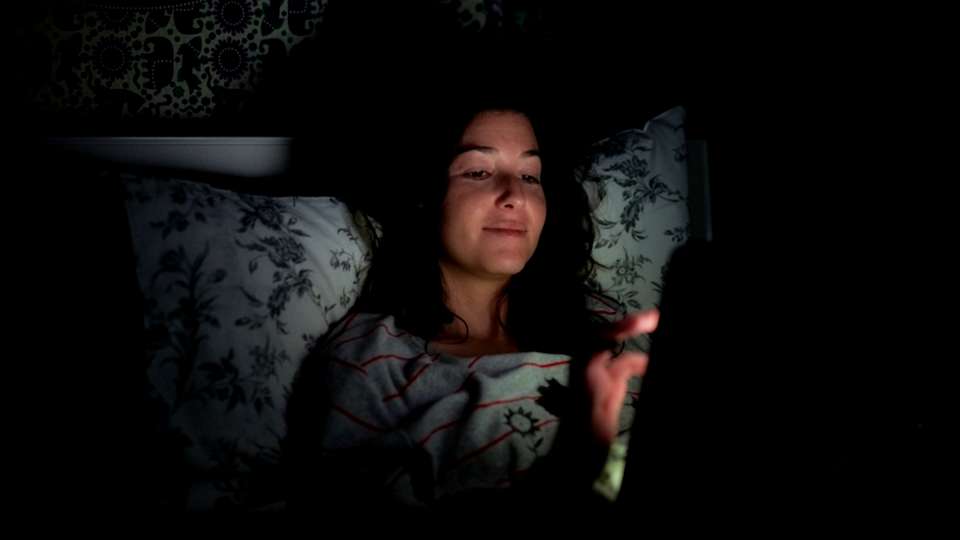
Here you are again: It’s way past your bedtime on a weeknight, but you just can’t seem to make yourself go to bed. You had a long day of work and chores and now all you want is some me time. You know that, come morning, you’ll regret staying up so late (hello, third cup of coffee). But you’ll probably do it again tomorrow night, too.
So, what gives? Turns out you might be suffering from a phenomenon recently dubbed revenge bedtime procrastination.
“People procrastinate bedtime for the same reason people smoke and overeat and drink too much alcohol and don’t get physical exercise. Most of this has to do with short-term gain rather than long-term cost,” says Michael V. Vitiello, a professor in the Department of Psychiatry and Behavioral Sciences at the University of Washington School of Medicine and a sleep specialist.
The problem is, if you’re regularly not getting enough sleep, the potential long-term health costs start adding up.
What is revenge bedtime procrastination?
Basically, people who put off going to bed — even though they know they shouldn’t — may feel frustrated that they don’t have enough time in the day to do things that matter to them. It’s about getting “revenge” on the hours during the day with little free time, according to The Sleep Foundation.
The concept has gained popularity during the pandemic, probably because many people have been working from home and experiencing a blurring of the lines between work and personal life, says Vitiello.
“There is good data to show that people who are working remotely are working more. If you’re doing that, you’re not getting to do the things you want to do,” he explains.
Dr. Vishesh Kapur, a sleep medicine physician and founder of the UW Medicine Sleep Center, distinguishes between two types of bedtime procrastination: When someone has free time but perhaps doesn’t feel that they do (or doesn’t manage their time well), and when someone actually has very little time for themselves.
The second type, both Vitiello and Kapur agree, can be harder to manage. Sometimes, people may need to sacrifice sleep if they work two jobs, work and care for a child, or work and care for an older relative.
“Many people are too busy and there may be a variable degree of how much control they have over that. It doesn’t allow them to find time they need to find meaning, to recuperate, to enjoy things they want. It’s protesting against that in some way, yet in other ways, the other part of the revenge is you’re hurting yourself,” Kapur says.
Is revenge bedtime procrastination harmful?
While putting off bedtime so you can read, watch TV or do another activity you enjoy can feel great in the moment, regular bedtime procrastination can have both short- and long-term consequences aside from feeling tired all the time.
Not getting enough sleep from one night of tossing and turning is usually OK, both Kapur and Vitiello say. However, just a day or two of sleep deprivation can impair your ability to function, impair your cognitive ability, problem solving and decision-making skills, attention, and vigilance. Your mood may also change as you find yourself feeling irritable, less open to others, anxious or depressed.
Long-term consequences are worse. According to Vitiello and Kapur, chronic sleep deprivation is associated with the development of diseases such as high blood pressure, diabetes, heart disease, dementia and chronic pain.
Sleep deprivation can have a lasting impact even when it doesn’t seem like a big deal. Of course it’s distressing to have chronic insomnia and not get enough sleep despite allowing enough time in bed, but it can also be a problem when someone who, say, should be getting seven hours a night only allows six hours in bed.
How to manage bedtime procrastination
Overcoming a bedtime procrastination habit can be easier said than done. Following these tips can help you get more zzzs.
Allow yourself to prioritize sleep
First off, before you take steps to try to fix your sleep habits, it’s important to recognize that you’re doing something important. Remind yourself that sleep matters and can make a difference in your health and well-being. Give yourself permission to make sleep a priority the way you prioritize other important things in your life.
Do a trial period
If you’re skeptical about the impact extra sleep will have or are struggling to make it a priority, tell yourself you’ll just do a trial period: say, getting eight hours of sleep each night for two weeks.
“We can usually motivate ourselves to do something for a while, then judge if the benefits are worth it or not,” Kapur explains.
Keep a sleep diary
While you’re doing your trial of getting more sleep, keep a sleep diary. This is just a notebook (or a note in your phone) where you write down what time you went to bed and got up for the day and how you felt the next day.
Then, after your sleep trial is over, you can look back at the notes you took and see if getting more sleep made you feel better. It can take a week or more to pay back the sleep debt you may have accumulated over time, so compare how you felt at the beginning to how you feel at the end of the trial.
Stick to a consistent schedule
“On average, over time try to maintain a comparable bed and rise time,” Vitiello says.
This means that you should try to go to bed at relatively the same time each night — say, 11 p.m. — and wake up at relatively the same time each morning — say, 7:30 a.m.
Some days, you may be unable to stick to this schedule, but it's recommended to be consistent as often as you can (and yes that includes on weekends).
Embrace napping
If you can’t get a full seven or eight hours of sleep at night, you can try supplementing your sleep with a half-hour or hour-long nap.
“Usually between 12 and 2 p.m. is a good time to nap because your body rhythm is ready to sleep again. Avoid napping in the late afternoon, which may interfere with sleeping at night,” Kapur says.
Make a family sleep plan
If your partner stays up late, that can mess with your sleep routine. Kapur recommends that families and households come up with a shared sleep schedule if possible so everyone is on the same page.
“Sometimes what one person does reinforces what another person does,” he says.
Address your other issues
If you find yourself continuously procrastinating bedtime and having trouble sleeping, it may be time to look at other areas of your life and how they may be impacting your sleep.
“Sleep is a place where, if other things aren’t going well in life, it shows up and you can’t ignore it. There’s only so much you can do by just dealing with it as a sleep problem, rather than a symptom of the whole context,” Kapur explains.
If you have too many responsibilities and too much to do in life, maybe now is the time to reevaluate whether or not you should try to make some changes. Or if you’ve been struggling with mental health, now may be the time to talk with your doctor or a therapist.
At the end of the day, sleep should be something you prioritize as much as you can. Some people may need to get creative in finding ways to do this, but there are lots of options to make getting more sleep work for you.

 Healthy ideas for your inbox
Healthy ideas for your inbox





